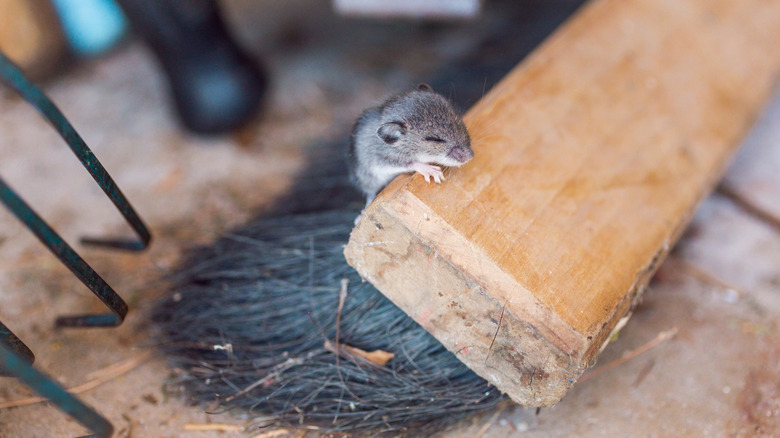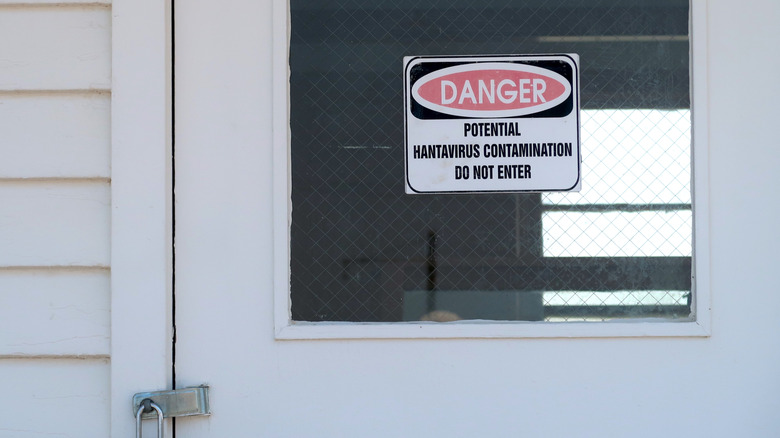Mouse Droppings Cleanup: Why You Really Do Want To Wear A Mask & Gloves
Depending on a few factors, like the age of your home and where you live, dealing with mice can be as inevitable as death and extended warranty offers. If you have the impression that mice are an urban phenomenon, think again. Anyone who's ever aerated hay with a tedder has probably seen hundreds of jumping mice leaping out of the way in a spectacle that's probably a lot more fun to watch than to experience. That's all quaint enough, but once the mice are in your house, there are more serious matters to deal with. The most serious of these? Funny as it may sound, it's their poop and urine. The reason is a rare but terrifying disease known as hantavirus.
Hantavirus is a group of viruses including Sin Nombre, the leading cause of Hantavirus Pulmonary Syndrome (HPS), which was first identified after an outbreak in New Mexico, Arizona, Colorado, and Utah in 1993. HPS causes flu-like symptoms at first, and in many cases, these symptoms worsen, to the point of causing fluid in the lungs — and eventually low blood pressure, shock, and respiratory failure. In its most serious state, the disease has a mortality rate as high as 40 percent... a case fatality rate roughly on par with the 1976 outbreak of Ebola.
According to the CDC as of 2021, 94% of hantavirus infections occurred west of the Mississippi River. That said, if you have mice, you're better off playing it safe, no matter what your location. And that, friends, is where gloves and a mask come into play.
Some masks can help prevent hantavirus when handling rodent droppings
Perversely, it's usually the act of cleaning that gets you infected with hantavirus. The two most likely sources of infection are (1) the handling of rodents and (2) exposure to the virus when aerosolized by manipulation of rodent feces and urine.
Since 70 percent of infections come from peridomestic settings — that is, human lodgings where mice also make a place for themselves — cleaning those feces and urine is the most likely way to get the virus in the air and into your lungs. Do note that you can't get hantavirus from another person, and as far as rodents go, it most often comes from deer mice. Thankfully, there are a few precautions you can (and should) take to clean it up safely. Perhaps most importantly, wear a N100, P100, R100 or N95 mask. Also gear up with rubber gloves and perhaps goggles. Use a wet cleaning method when dealing with mouse droppings: Spray the area with a 10 percent bleach solution and let it sit for 10 minutes. Use disposable cloth towels to wipe up any droppings, urine, or nest materials, then mop the area again with your disinfectant solution. Sanitize any nearby fabrics from mice droppings, as well.
From there, prevention is key. Take steps to get rid of mice in heating ducts, while you're at it. In general, you'll want to get aggressive about getting rid of any rodent infestation, and sealing up your home (including garage and outbuildings) to minimize mouse access. Unfortunately, as we said before, sometimes mice are as unavoidable as those extended warranty calls, and where you find mice, you'll always find droppings. So take care, take precautions, and stay safe.

